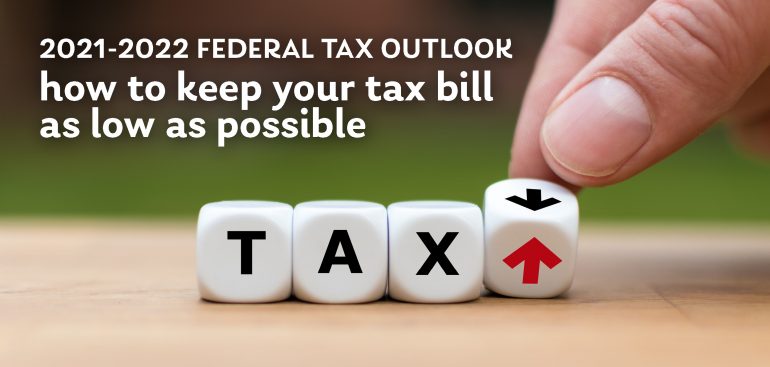There are a lot of factors affecting the federal tax outlook for 2021-2022: a global pandemic and recession; business closures and job losses; both houses of Congress controlled by the Democrats; and a significant policy shift in the Executive Branch. We can expect some major changes in tax laws, which will affect the finances of all Americans in one way or another.
While Congress and the Biden White House are still in the process of ironing out the details, some general trends are emerging, which will likely characterize the operations of the federal tax system for at least the next four years. Without spending too much time on the details of the laws and regulations, let’s consider what you need to do to lower your tax bill in light of the new fiscal outlook.
Make the most of the standard deductions
While some of the deduction guidelines and limits are set to change, your approach should remain the same: always strive to get the maximum benefit. If your total itemizable deductions are close to your standard deduction amount, consider accelerating any charitable deductions in the current year to exceed the standard deduction. In this way, you will be making payments that will lower this year’s tax bill.
Be mindful of the Biden administration’s proposed changes
President Biden will be introducing a number of changes to the tax laws that are set to favor lower-income earners while placing heavier obligations on the wealthy. Those who earn in excess of $400,000 per year will have to pay more in taxes. Tax breaks on real estate and inheritances will fall away, and more stringent limits will be placed on itemized deductions.
Individuals and families in lower to middle-income brackets will receive a few additional tax breaks. Speak to a certified public accountant about how these will affect your situation and how you can adjust to accommodate the changes, and either soften their impact or make the most of the potential benefits.
A certified public accountant can help you navigate the changes to tax laws, manage your gains and losses and get the most of the deductions and benefits while maintaining 100% compliance with shifting regulations. Contact Georgen Scarborough to see we can assist you with your federal tax outlook for 2021 and 2022.


